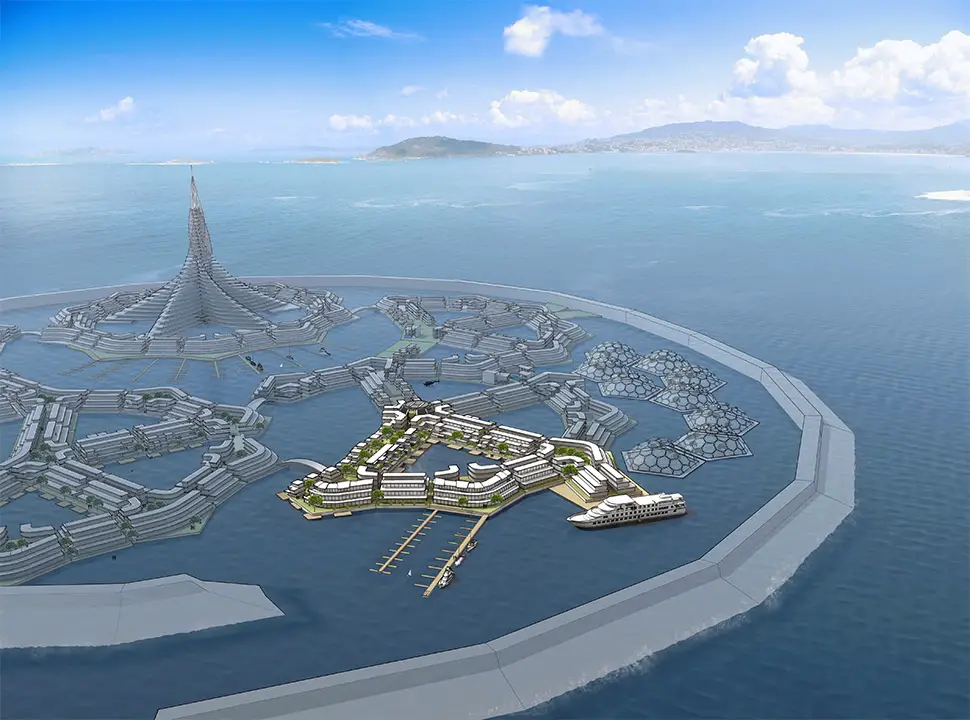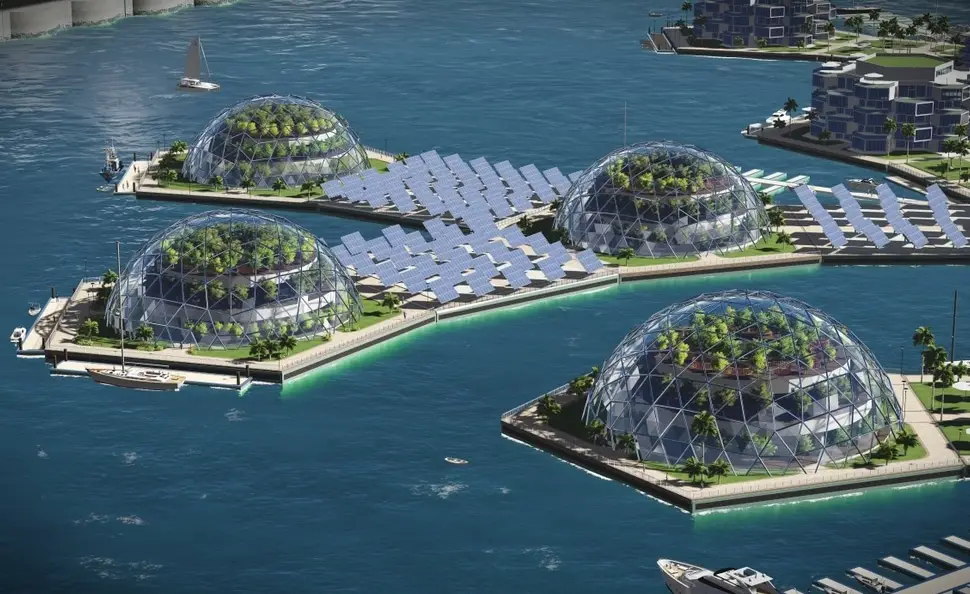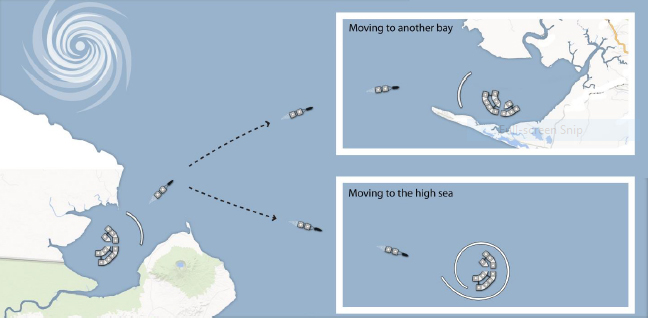
19th January 2017 World's first "floating city" moves a step forward The world’s first "floating city" has moved a step closer to reality after the French Polynesian government signed a historic agreement with the nonprofit Seasteading Institute.
The French Polynesian government has signed a historic agreement with nonprofit The Seasteading Institute to cooperate on creating a legal framework to allow for the development of the Floating Island Project. This legislation will give the Floating Island Project its own "special governing framework" creating an "innovative special economic zone." The Seasteading Institute has announced the formation of a new company, Blue Frontiers, to construct the ocean-based city. The project will help to advance French Polynesia’s "Blue Economy" initiative – providing an opportunity to adapt to rising sea levels, while creating a fresh space for pioneering social and technological innovation. Jean Christophe Bouissou, Minister of Housing and the government’s official spokesperson, arrived in San Francisco to sign the agreement on behalf of President Edouard Fritch in the company of Silicon Valley luminaries, members of the press, and supporters of The Seasteading Institute. “The Memorandum of Understanding I’m sure will greatly help and facilitate our future cooperation on this innovative project,” said Fritch, addressing the group from French Polynesia by video call. “Our seasteading collaboration with French Polynesia was initiated by the Tahitians themselves and will bring jobs, economic growth, and environmental resiliency to the region,” said Randolph Hencken, Executive Director of the Seasteading Institute. “Signing the MOU with French Polynesia is an important first step, and a huge milestone for seasteading.”
In September, President Fritch invited an international delegation from The Seasteading Institute to examine several potential sites near the French Polynesian islands of Tahiti, Tupai, and Raiatea. The MOU obligates the Institute to conduct an economic analysis to demonstrate the economic benefits for French Polynesia – as well as an environmental assessment, to assure the health of the ocean and seabed. As soon as these studies are complete, French Polynesia will collaborate with The Seasteading Institute to develop a “special governing framework” to construct sustainable floating islands. “The Seasteading Institute and the government of French Polynesia will draw from the best practices of more than 4000 existing Special Economic Zones around the world to create a ‘Special Economic SeaZone,’” explained Hencken. “The SeaZone will combine the advantages of French Polynesia’s geopolitical location with unique regulatory opportunities, specifically designed to attract investors.” Seasteading investors will self-fund the initial studies and the construction of the floating islands. The pilot project is expected to cost between US$10 million and US$50 million. Subsequent future versions will include self-sufficient food and water, healthcare, clean energy and other features. They will be interlocking like jigsaw puzzles to facilitate expansion. It is also hoped that protection from devastating storms could be offered by giving each city the ability to be disassembled into separate sections and temporarily moved elsewhere.
“After many long years of work by our staff and global network of advocates, I'm incredibly excited for the chance to work with French Polynesia, which as an archipelago is uniquely suited to seasteading,” said Patri Friedman, Founder and Chairman of The Seasteading Institute’s Board of Directors. The former Minister of Tourism for French Polynesia, Marc Collins, is enthusiastic about the Institute's vision: “Polynesian culture has a long history of seafaring across the Pacific Ocean that will contribute to this ambitious project. More than most nations, our islands are impacted by rising sea levels, and resilient floating islands could be one tangible solution for us to maintain our populations anchored to their islands. For many Polynesians, leaving our islands is not an option.” If all goes according to plan, the first floating city will start construction off the island of Tahiti in the Pacific Ocean in 2019. The first residents will number only a few dozen, but there is potential for expanding this to many millions later in the century, as other nations realise the benefits. Each city will float just off-shore of a host country, but could have a substantial degree of political independence. The Institute says: “Our in-property team is now actively engaged in diplomacy with host nations, making the case that hosting an autonomous seastead city in their territorial waters would generate substantial financial, social and environmental rewards for their citizens.” Peter Thiel, who co-founded The Seasteading Institute, said in 2008: “Decades from now, those searching back at the beginning of the century will realise that seasteading was an obvious step towards encouraging the improvement of far more efficient, practical public sector models about the globe. We are at a fascinating juncture: the nature of government is about to alter at an extremely fundamental level.” Below is a video of "Artisanopolis", one of the design concepts proposed in 2015 by CGI artists at Roark 3D (Gabriel Scheare, Luke and Lourdes Crowley, and Patrick White). The final plans will be unveiled later this year. You can follow the progress of the Floating Island Project at twitter.com/Seasteading
---
Comments »
|









